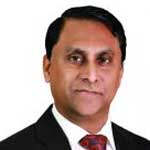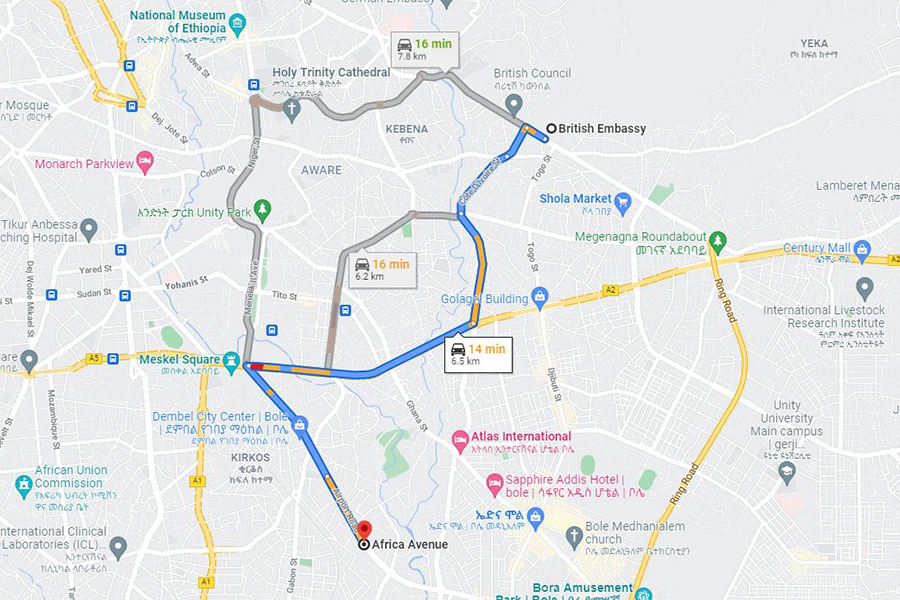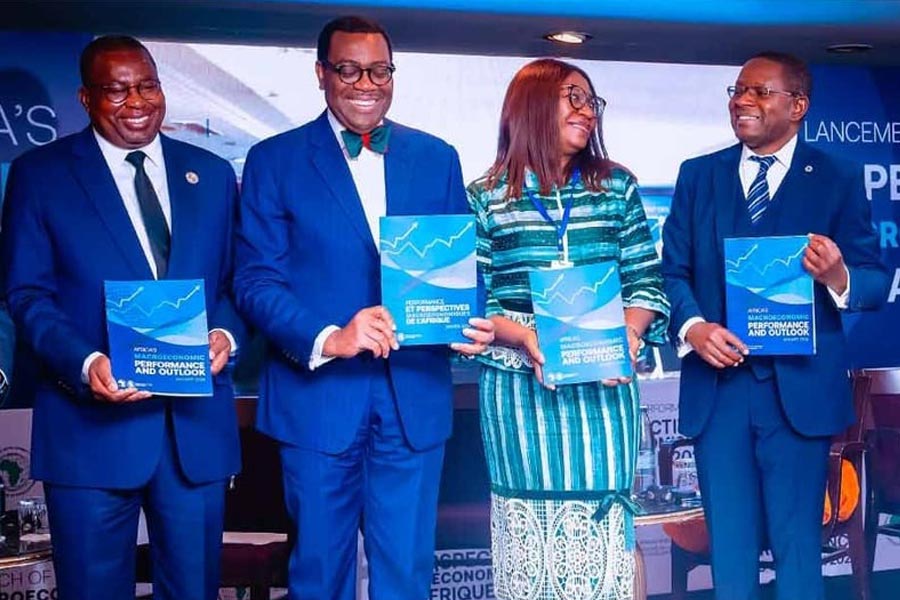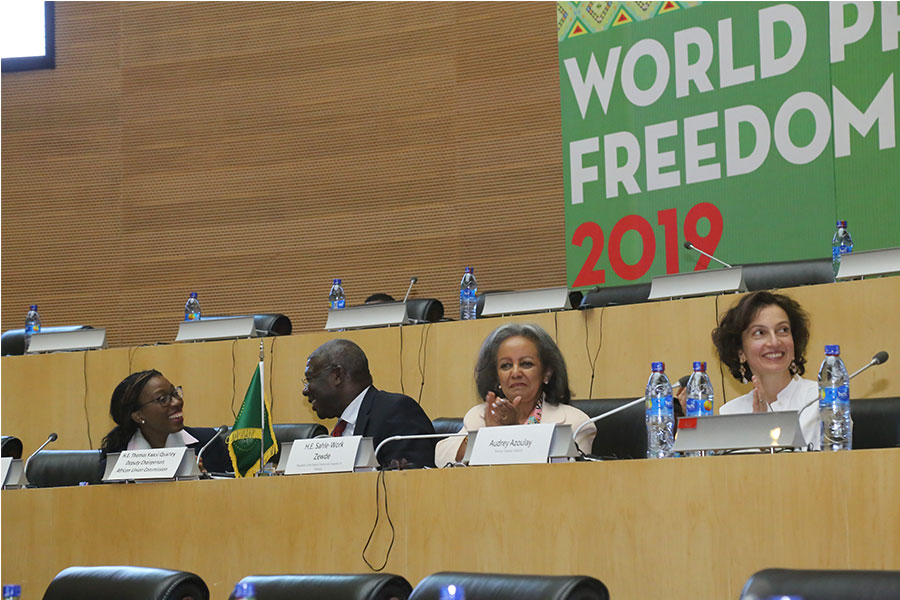
May 8 , 2021
By Austine Sequeira
Africa should build on its improving levels of press freedoms. If professional and independent, the media will serve as a pillar to the sort of democracy African countries are attempting to establish, writes Austine Sequeira (PhD) (austinesequeira@gmail.com), a socio-economic analyst and advisor.
The 2021 World Press Freedom Index, by Reporters Without Borders (RSB), ranks Ethiopia at 101 out of 180 nations across the world. Neighbouring Eritrea enjoys the last position. To its credit, Ethiopia is ranked above Kenya and Mozambique and placed much higher than its 2018 ranking of 150. But the country is also way below Namibia, Ghana, Burkina Faso, Madagascar, Togo and Senegal although Ethiopia's economic achievements score above these nations.
The past three years reveal that Ethiopia has progressed and achieved better milestones, at least on account of freedom of press. As this has been against the backdrop of deep political unrest, it should be celebrated.
For the past two centuries, democracy has developed into one of the most important tools for socio-political development. No other political system can replace democracy and bring about human upliftment. A free press can and has enhanced democracy and good governance. Nonetheless, the above statistics also reveal that freedom of the press has a different meaning to different democracies.
A few, genuine democracies give birth to a “watchdog” press while others create cheerleaders. In both, monetary gains play an important part especially in times of an economic bubble. Great examples in this regard are India and the United States, where the press is divided on political lines and the elite have their own cheerleaders, creating a deep schism in society.
The chief criterion employed to evaluate and generate the freedom of press index is the degree of freedom available to journalists, pluralism, media independence, media environment and self-censorship, legislative framework, transparency, and the quality of the infrastructure that supports the production of news and information, according to Reporters Without Borders. It would not be an overstatement to say that on average, the press in every African country suffers on all these counts.
There has to be a press to enjoy "freedom of press." Most African countries have lower than four daily publications. These are either owned by or affiliated with the government and mercifully adorn government offices. Furthermore, poor circulation and readership and assured governmental advertorial support lead to complacency and skewed reporting. The result is that the general public is just not interested in reading such publications and when they are occasionally accessed, it is by people checking tender or vacancy notices.
Another aspect that drives freedom of press is literacy, education and income levels of the masses. There are 14 African countries that rank between below 100 in the press freedom index. These countries, except South Africa, have abysmal literacy levels, low per capita income and negligible spending on millennium development goals.
It is true that today, nearly two-thirds of Africans also have access to different news sources such as television and social media. However, television news is “one more entertainment avenue” if not outright propaganda, which it usually is, while social media news is “hearsay.” The issue is further magnified when we stumble upon literacy statistics. With the continent being home to the largest population on Earth without formal access to education, access to the press is seen more as a luxury. Given such a situation, pluralism, media independence and awareness are misnomers when indexing freedom of press.
Fortunately, there have been a number of attempts to institutionalise freedom of the press in Africa. A notable one was the 2002 Banjul Declaration of Principles on Freedom of Expression in Africa. This declaration is legally binding for signatories to the new African Court of Justice and Human Rights, and gives statutory force to freedoms of expression and of the press. Observers of the continent, and indeed indexes such as on press freedom, show that there is a slow but sure improvement of democratic dispensation.
Africa should build on this through a viable, sustainable press in the form of physical newspapers and digital media. WhatsApp, Facebook and Instagram are not press but a very individualistic means of expanding views and are subject to lack of credibility. The media, if professional and independent, is the proven pillar for the democratisation process of African countries.
PUBLISHED ON
May 08,2021 [ VOL
22 , NO
1097]


Editorial | Feb 06,2021

My Opinion | Jun 22,2024

Radar | Jun 26,2021

Viewpoints | Dec 04,2022

Fortune News | Dec 11,2021

Fortune News | Nov 11,2023

Fortune News | Feb 18,2024

Commentaries | Nov 06,2021

Sunday with Eden | Jul 20,2019

Radar | May 04,2019

Photo Gallery | 174517 Views | May 06,2019

Photo Gallery | 164744 Views | Apr 26,2019

Photo Gallery | 154925 Views | Oct 06,2021

My Opinion | 136686 Views | Aug 14,2021
Editorial | Oct 11,2025

Dec 22 , 2024 . By TIZITA SHEWAFERAW
Charged with transforming colossal state-owned enterprises into modern and competitiv...

Aug 18 , 2024 . By AKSAH ITALO
Although predictable Yonas Zerihun's job in the ride-hailing service is not immune to...

Jul 28 , 2024 . By TIZITA SHEWAFERAW
Unhabitual, perhaps too many, Samuel Gebreyohannes, 38, used to occasionally enjoy a couple of beers at breakfast. However, he recently swit...

Jul 13 , 2024 . By AKSAH ITALO
Investors who rely on tractors, trucks, and field vehicles for commuting, transporting commodities, and f...

Oct 11 , 2025
Ladislas Farago, a roving Associated Press (AP) correspondent, arrived in Ethiopia in...

Oct 4 , 2025
Eyob Tekalegn (PhD) had been in the Governor's chair for only weeks when, on Septembe...

Sep 27 , 2025
Four years into an experiment with “shock therapy” in education, the national moo...

Sep 20 , 2025
Getachew Reda's return to the national stage was always going to stir attention. Once...

Oct 12 , 2025
Tomato prices in Addis Abeba have surged to unprecedented levels, with retail stands charging between 85 Br and 140 Br a kilo, nearly triple...

Oct 12 , 2025 . By BEZAWIT HULUAGER
A sweeping change in the vehicle licensing system has tilted the scales in favour of electric vehicle (EV...

A simmering dispute between the legal profession and the federal government is nearing a breaking point,...

Oct 12 , 2025 . By NAHOM AYELE
A violent storm that ripped through the flower belt of Bishoftu (Debreziet), 45Km east of the capital, in...